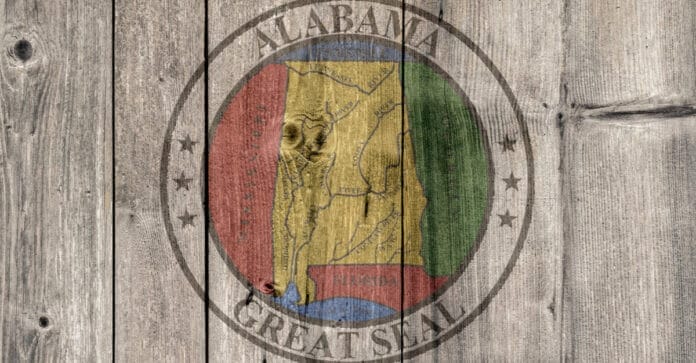
Last week, a trio of federal judges chose a new congressional map for Alabama after almost two years of protracted skirmishes in state, federal and US Supreme courts.

By Barrington M. Salmon, NNPA Newswire Contributor
Plaintiffs, including the NAACP, ACLU, Shalela Dowdy and Evan Milligan, had filed suit to challenge a new congressional district map drawn by Republicans in the Alabama Legislature which they said violated the landmark 1965 Voting Rights Act. The Republican-dominated legislature ignored the US Supreme Court and a lower court, forcing a three-judge panel to appoint a special master to redraw the boundaries.
Milligan said in the days after the court victory he has purposely not taken too much time to celebrate.
“I think I expected (this outcome) only very recently in the last couple of weeks,” said Milligan, 42, executive director of Alabama Forward, which describes itself as ‘a statewide civic engagement network committed to bringing together nonpartisan organizations to (build) power around progressive civic issues and movement towards greater freedom.’ “I am rightfully overjoyed, happy and thankful but as I think about those closer cases, there is a lot in store for us to do.”
“Alabama’s defiance is striking and nearly unprecedented in this country’s history. A recent report offers important color and context. This is not an organic development. Legislators are not acting or making strategy independently. There is a billion-dollar force which has been entrenched in the judiciary. About $600 million has been spent to control the composition of the court.”Alex Aronson, a judicial accountability advocate and former chief counsel to US Sen. Sheldon Whitehouse
Fellow activist Cliff Albright said he was of the same mind.
“There’s not much time for celebration although celebration of the Supreme Court ruling is too strong a word,” said Albright, co-founder and executive director of Black Voters Matter and the Black Voters Matter Fund. “I mean we expected it when the census was done and with the numbers but I know there’s always. Celebration would have been picking the second map.”
“The map that was chosen is technically not a majority-Black district. It has 48 percent of the population and a 45 percent voting population. We have the opportunity because it may be the first time we have a district without being a majority-Black district. It sets a troubling benchmark. They’re opening up a slippery slope. They could start watering down a majority-minority district.”
Albright, a 2020 Soros Equality Fellow, said he’s aware of the games certain legislators and policymakers play, even as he, fellow activists and voting rights advocates work to bring parity and justice to the electoral process.
“They are not guided by commonsense, justice or rightness,” said Albright. “We see anti-Black white supremacy in the Alabama legislature. White supremacy never takes a day off. It’s always playing the long game. When you’re in power, you can play the long game.”
In the interim, Albright said, activists need to concentrate on voter education; discussing with the community what the voting and voting rights looks like; stepping up voter registration and turnout; fighting to establish early voting; instituting voter changes; and ensuring that polling stations stay open long enough of all those who want to vote to do so.
“That discussion needs to start today,” he said. “We still have battles over Section 2, racial gerrymandering and related issues.”
Alex Aronson said he was struck by the brazenness of the Alabama state legislature.
“Alabama’s defiance is striking and nearly unprecedented in this country’s history. A recent report offers important color and context,” said Aronson, a judicial accountability advocate and former chief counsel to US Sen. Sheldon Whitehouse. “This is not an organic development. Legislators are not acting or making strategy independently. There is a billion-dollar force which has been entrenched in the judiciary. About $600 million has been spent to control the composition of the court.”
Aronson said that money comes from a network built by arch-conservative activist and rightwing power broker Leonard Leo and the Federalist Society, a dark money front group which was instrumental in selecting all six conservative justices on the US Supreme Court.
Aronson, managing director of the Institute for Constitutional Advocacy and Protection at Georgetown University, said the Alabama case goes to the heart of whether America remains a democracy or not.
“Something abnormal is happening here. A dark-money network is behind the attacks on Critical Race Theory, book banning and more. They have been hiding their tracks. They have serious and dangerous plans for America’s future,” he said.
On Twitter, Aronson offered yet another warning: “Elected Democrats either stand up to confront the Federalist Society’s authoritarian project, or we descend into authoritarianism. Those are the options.”
The Rev. Jim Wallis said Alabama represents the existential struggle between white Christian nationalists and other Americans who aren’t as ideological or who hold different positions.
“This is about race and power. This is a test of the court system, equality, and a test of faith,” said Wallace, a renowned social justice activist, theologian, author and teacher. “… It’s about 2024 and the election. History is coming to a crescendo. It’s a choice between a genuine multicultural democracy or a land ordained by God for white Europeans. A whole lot of white people support this … We’re facing, finally. A decision: ‘Is America possible?’”

